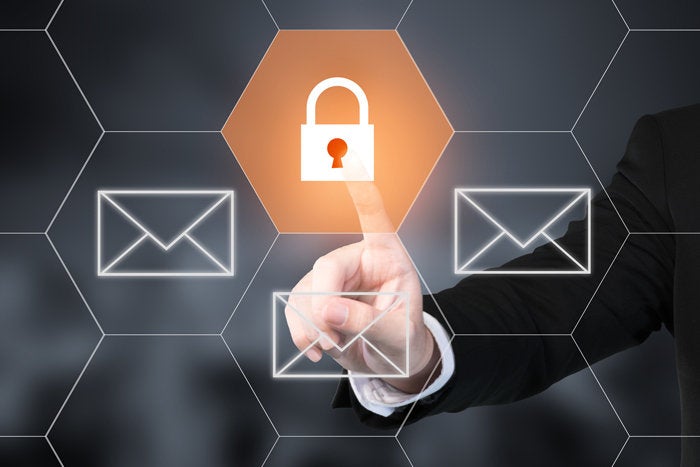Targeted email attacks and cybercrime as a whole have been on the rise in businesses, where anonymous malicious online actors look to gain access to your data and information to then use for financial fraud. Some of these cyber-attacks can be long-term and persistent, with the attacker often changing their means of attack and improving their actions to counter your improving business cyber defenses.
Gone are the days where a generic antivirus software or standard e-mail protection protocols are sufficient. Hackers are far too sophisticated for this and can find ways past these basic security measures. One of the trending topics at the moment is the move towards DomainKeys Identified Mail (DKIM) as one of the preeminent ways to deter and protect your business from these targeted attacks.
DKIM
DomainKeys Identified Mail (DKIM) is a safety protocol that allows organizations to take responsibility for the transmission and acceptance of any email by signing them in a manner that mailbox providers can read and identify as genuine. Using cryptographic authentication, the business can record all verifications and build up a detailed database of accepted signatures and security protocols.
Firstly, the sender must be able to identify which fields they want in their ‘to or from’ signature string and this is then encoded or encrypted with only the known recipient having access to the code to decrypt the signature or address fields. Secondly, the receiving mailbox or email gateway must be able to validate the said signature or encrypted hash code.

It is one of the best ways to protect your employees and defend against the rising trend of targeted email attacks by verifying the fact that no third party has tampered with the data within the emails that are both sent and received.
DKIM is used in conjunction with other email security to form the Domain-based Message Authentication Reporting and Conformance (DMARC) which then determines what happens to the message when it fails DKIM validation. Sender policy frameworks (SPF) are generally considered to be the other main aspect required for a professional DMARC setup. The DKIM will prevent tampering with messages while the SPF will prevent spoofed messages using the sender’s domain. To read more about DKIM, click here and find out what the professionals have to say. It is definitely a trend that has taken off in a big way and is said to be the start of improved email security like we have never seen before.
If your business uses emails as a form of professional communication, for marketing and transactions it is strongly advised that you have some form of email authentication and security. DKIM is part of a package but is one of the main ways to guarantee and then verify that the email is from a known source.
It is proving to be one of the best ways to prevent targeted email attacks and ensure that your business and employees only open emails from a known and trusted source.















